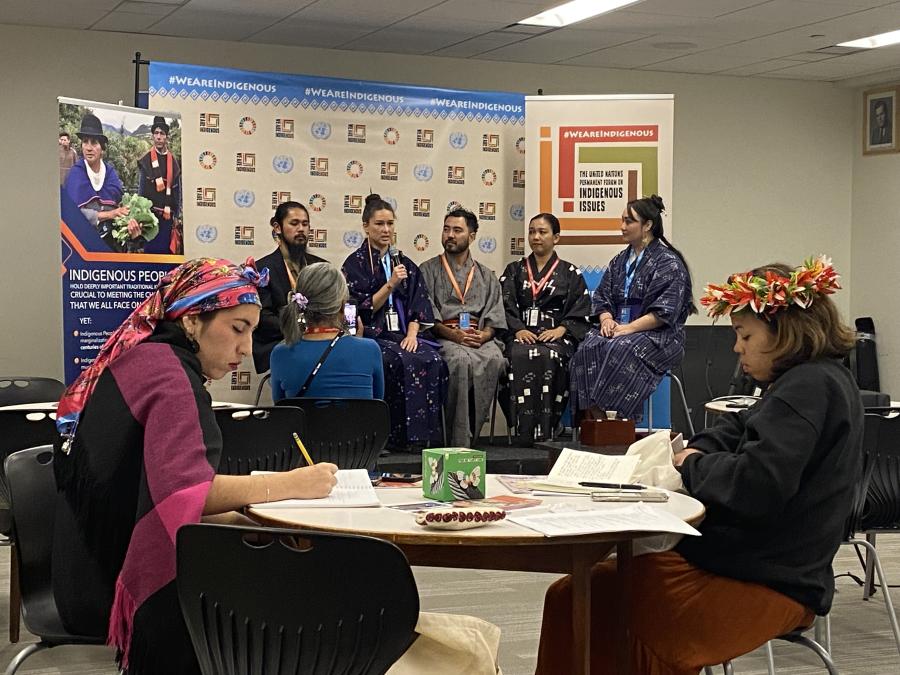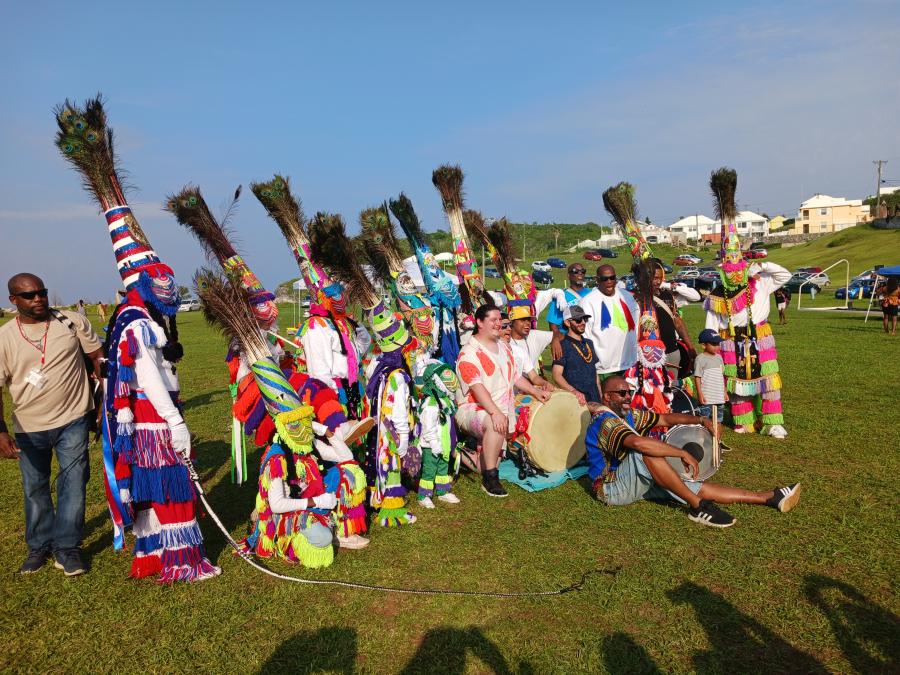Indigenous peoples concerned with bio-colonialism say they have ethical concerns about National Geographic's Genographic Project, which will study indigenous DNA to map human migratory history.
Launched in April and scheduled to span five years, the Genographic Project will be carried out by scholars in 10 regional centers around the world, lead by the National Geographic Society in partnership with IBM and the Waitt Family Foundation, which will provide technical and financial support.
The researchers intend to gather 100,000 DNA samples from indigenous peoples around the world, and also sell DNA swab kits to anyone else who wants to learn about their genetic origins. Part of the proceeds from the sale of the kits will go toward the Genographic Legacy Fund to support indigenous education and development programs.
According to Spencer Wells, a population geneticist and the director of the project, the genetic data collected by the project, combined with archeological, linguistic, and historical evidence, will allow scientists to gain deeper insights into human origins, diversity, and migration routes around the world.
But some indigenous people say that the project falls short of ensuring that the benefits of the research to its participants outweigh the risks. "They cannot come up with any tangible benefits for the indigenous community," said Debra Harry, executive director of the Indigenous Peoples Council on Biocolonialism (IPCB), in a phone interview. "Promoting diversity and protecting indigenous peoples [as the project claims to do] could be done without taking our DNA."
Homo sapiens are believed to have evolved some 200,000 years ago and started their migration out of East Africa some 50,000 to 60,000 years ago. DNA has been used to research patterns of human diversity for several decades, but the scale of such studies have been insufficient to draw a comprehensive picture. "We have a glance at the forest, if you will, but not a very good idea about the trees," said Wells, who called the genographic project a moon shot of anthropology.
The risks, on the other hand, are many, Harry said. Project findings may contradict indigenous oral traditions about their origins. In addition to psychological damage, this may cause political harm. "How can they control that these findings will not be used against indigenous peoples?" Harry asked.
Security is another concern. While the project team says that IBM's databases provide the most sophisticated data protection, IPCB is not convinced. With 10 fieldwork centers operating rather autonomously, the collected genetic data may be at risk of unauthorized secondary uses.
In the past, genetic material gathered under academic pretenses from the Nuu-cha-nulth of British Columbia, Canada, and the Havasupai Tribe of Arizona was reused for other research without the groups consent.
IPCB recently met with the Genographic Project team to discuss its concerns and review the protocols of the Institutional Review Board (IRB) at the University of Pennsylvania that granted an approval for the North American fieldwork to commence. The purpose of the IRB is to ensure that the ethical norms of human research are properly met and the rights of human participants protected.
"If these are the standards that are going to be adhered to worldwide, then we are even more worried than before," says Debra Harry. "Because the project is privately funded it will not have the kind of scrutiny that a publicly funded project would."
IPCB spent much of the 1990s protesting the Human Genome Diversity Project (HGDP), another genetic research project that eventually failed to obtain public funding or an endorsement from international institutions. The Genographic Project has been quick to distance itself from HGDP. Planners say that even though the two projects have similar goals, the methods differ and none of the research findings from the Genographic Project will be patented. All of the information for the new project will be released into the public domain.
But IPCB members say they are disturbed that one of HGDP's major proponents, prominent population geneticist and Wells's former mentor Luca Cavalli-Sforza, now serves on the Genographic Project advisory board.
More importantly, Harry says, the Genographic Project—like HGDP before it—failed to engage indigenous peoples in the structuring of the research. "The project is centered around indigenous peoples and they would have to be involved in posing the questions of the research itself," Harry said. "There have been no such consultations. It is simply scientific arrogance."
The Genographic Project team insists that ongoing consultations with indigenous leaders are part of the project. "We do not see the indigenous peoples as 'subjects' of the research, but as collaborators," Wells said. "The project has celebrating cultures and diversity at its core; it is not a genetic research, but an anthropological study that simply uses genetic tools."
Despite these assurances, IPCB plans to launch a public campaign to ensure that indigenous communities can make fully informed decisions about the study. "The indigenous peoples network is strong and many look up to IPCB to take up a stance and look critically at every new genetic study that involves them," Harry said.



